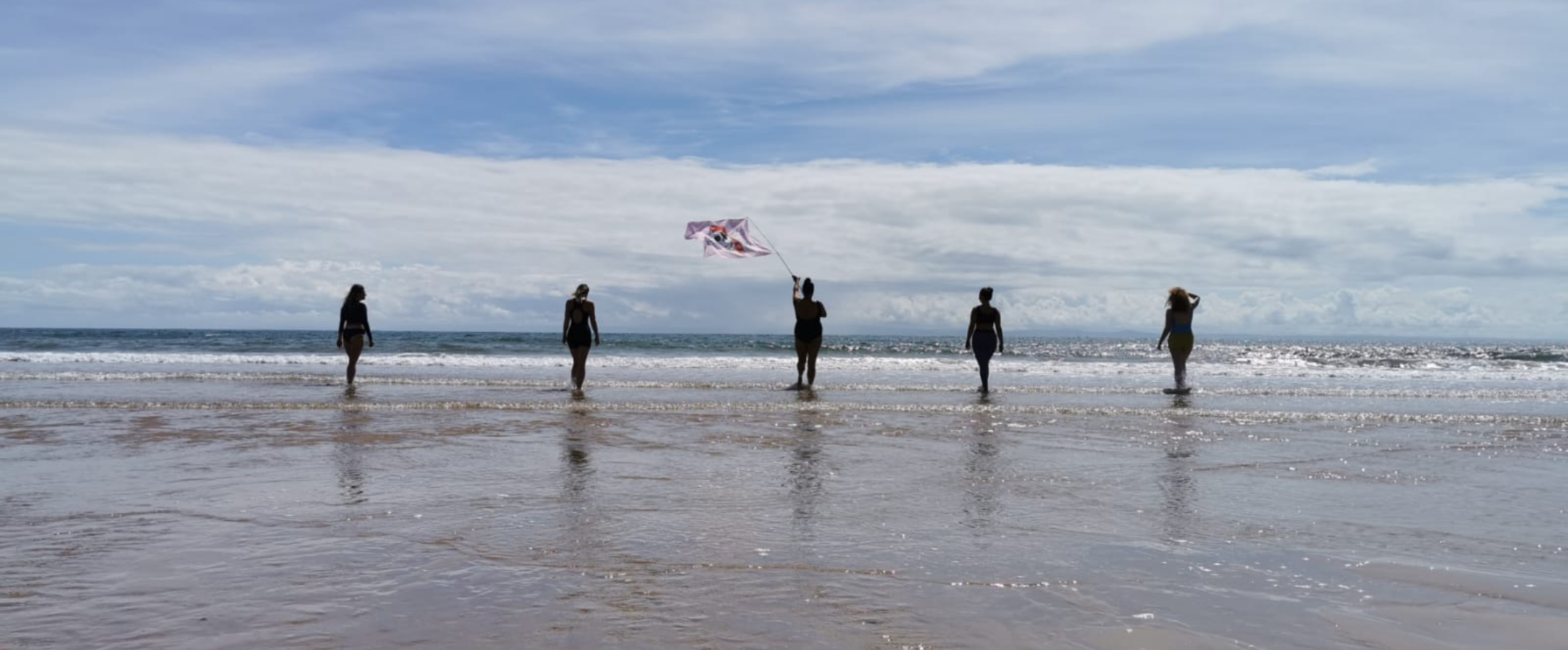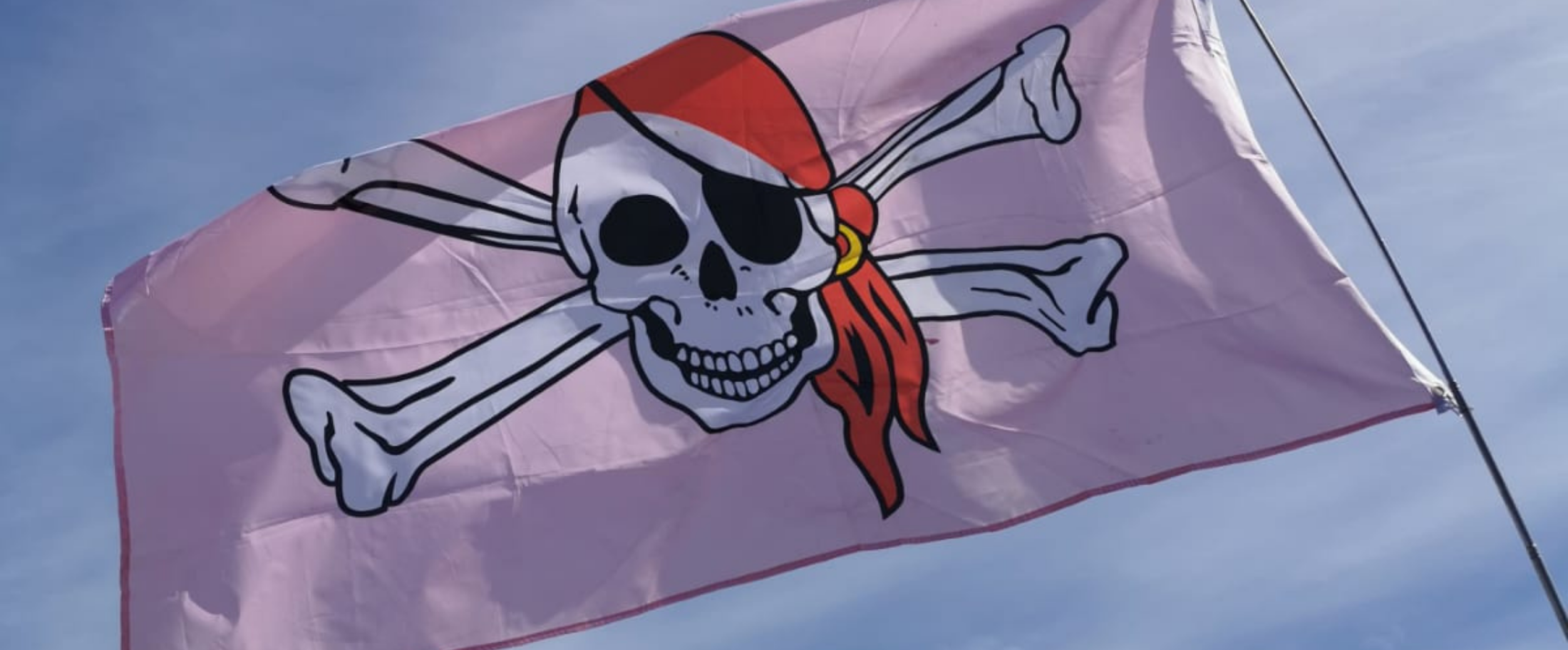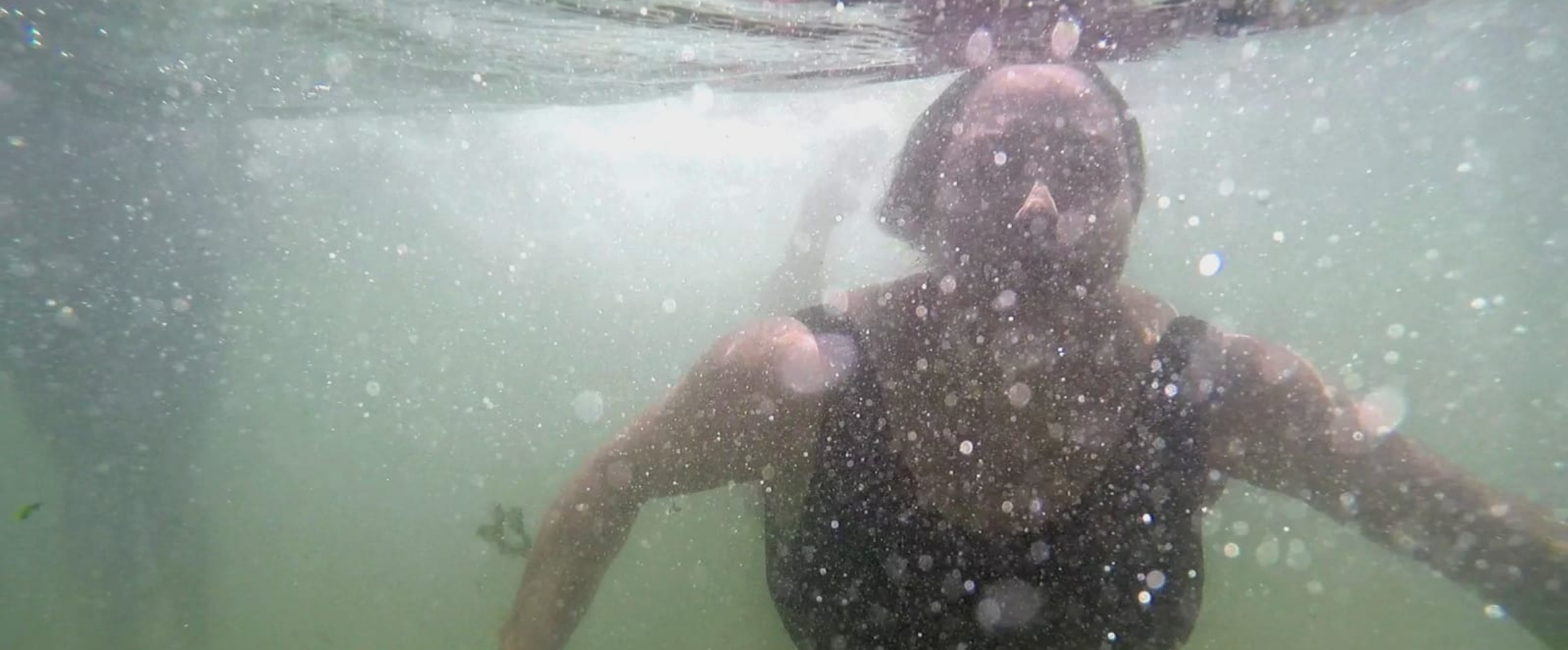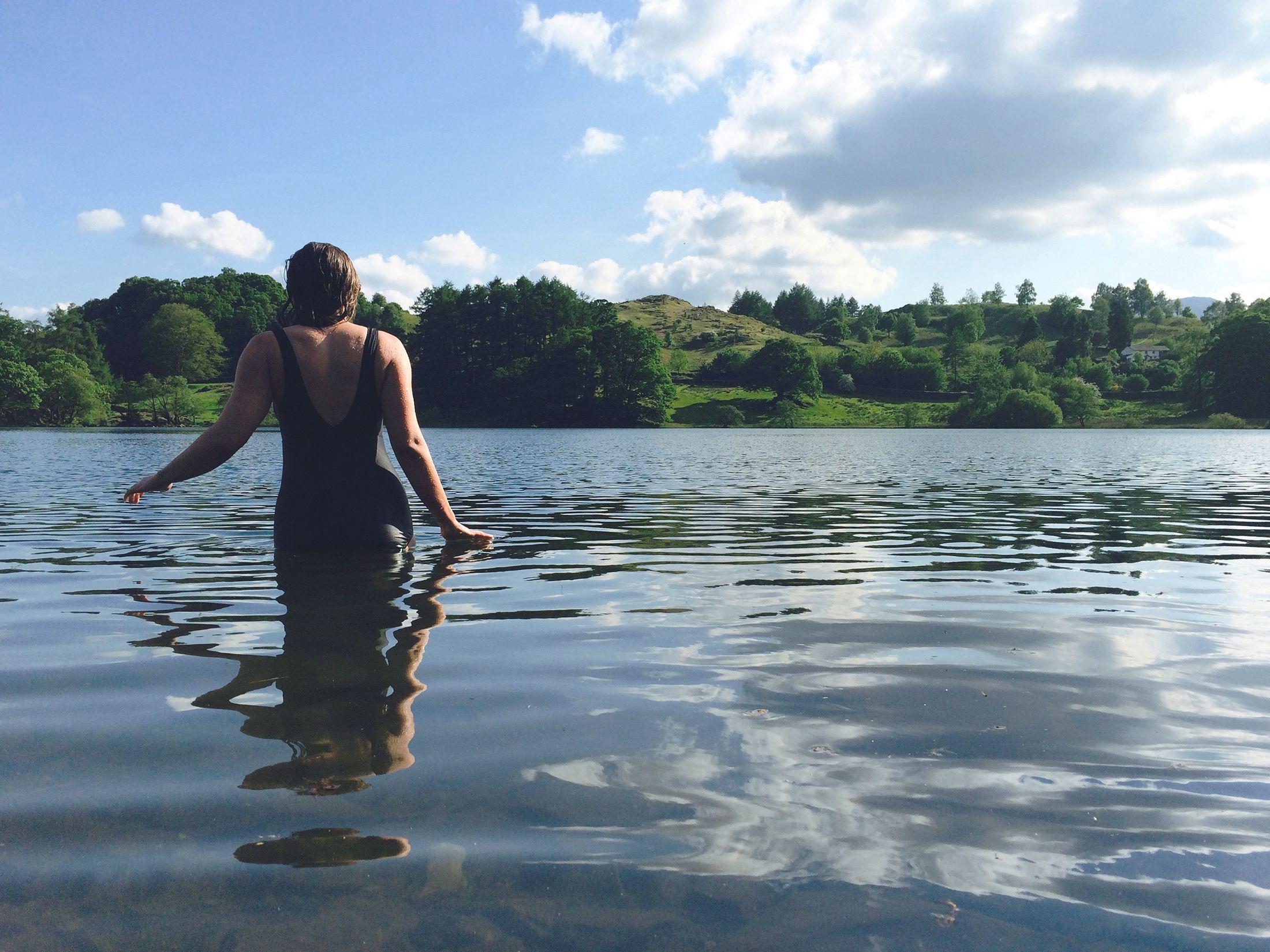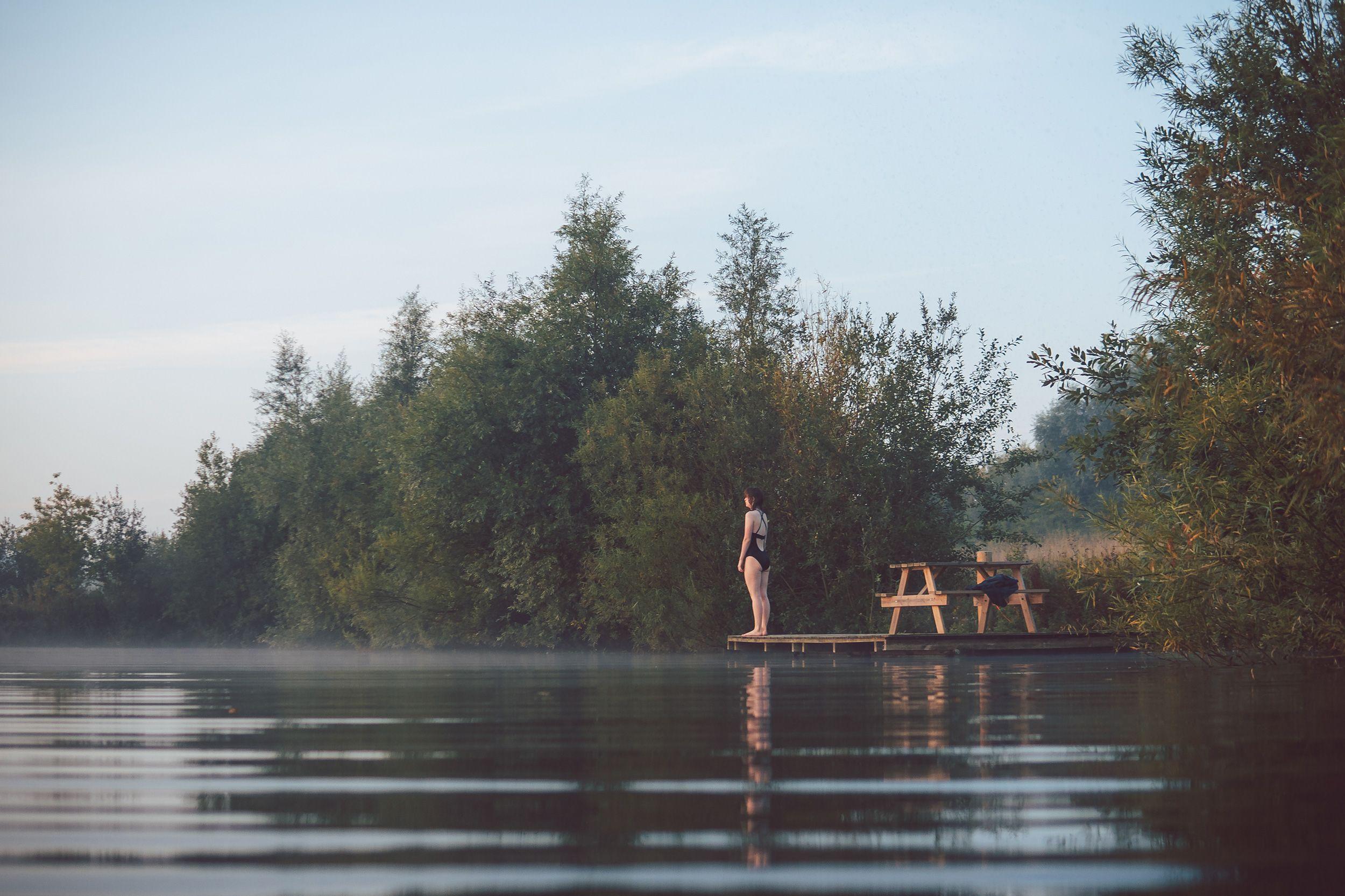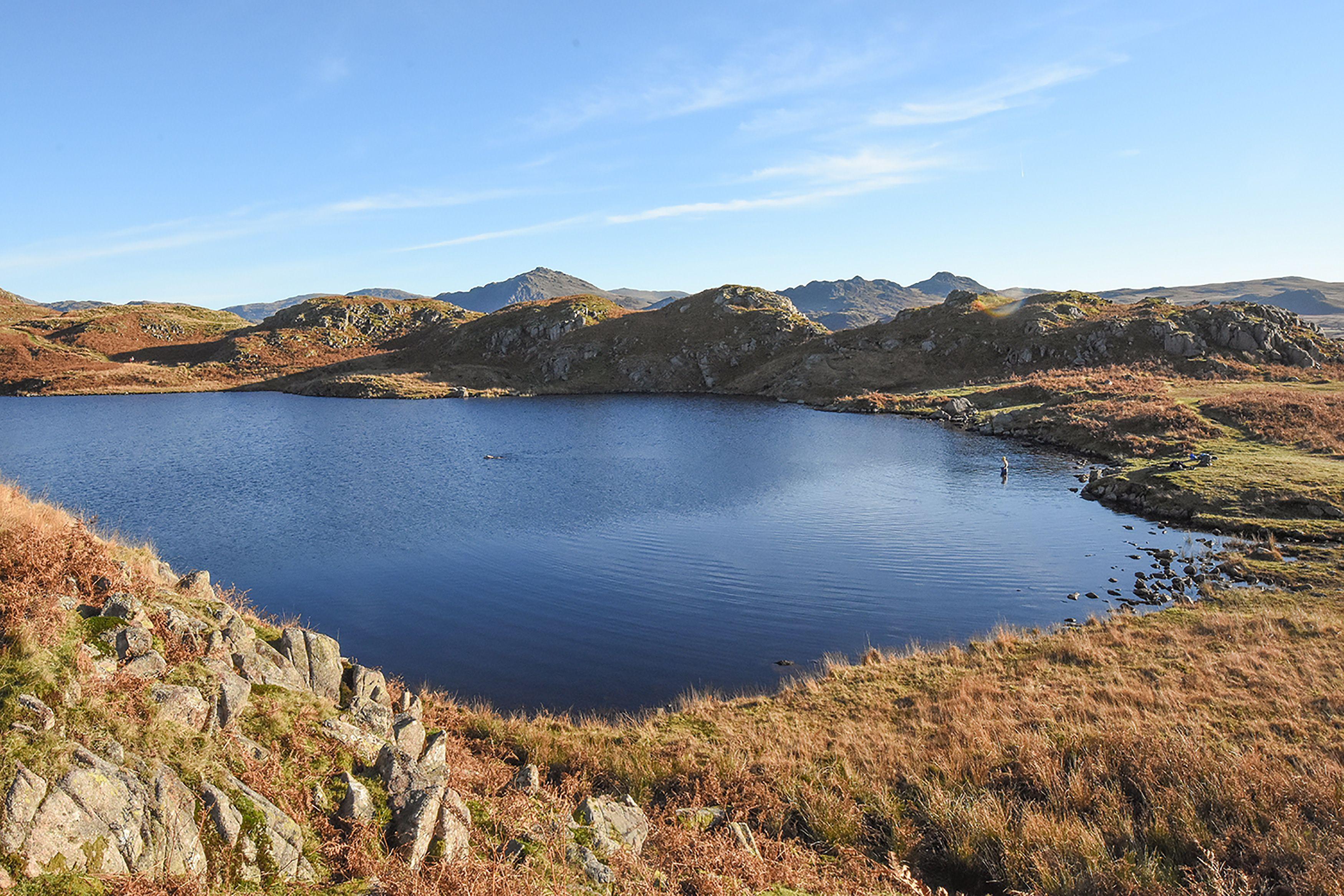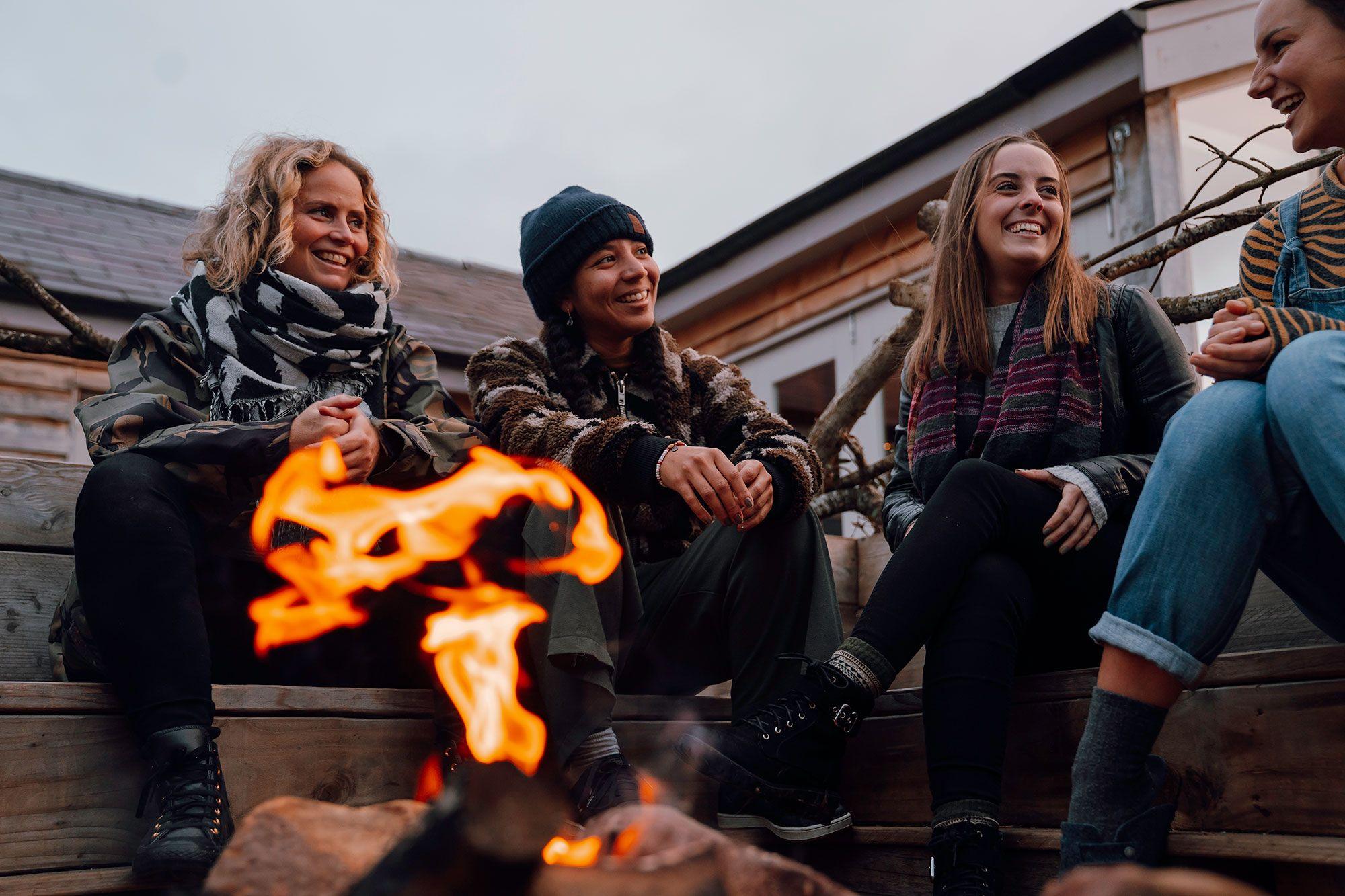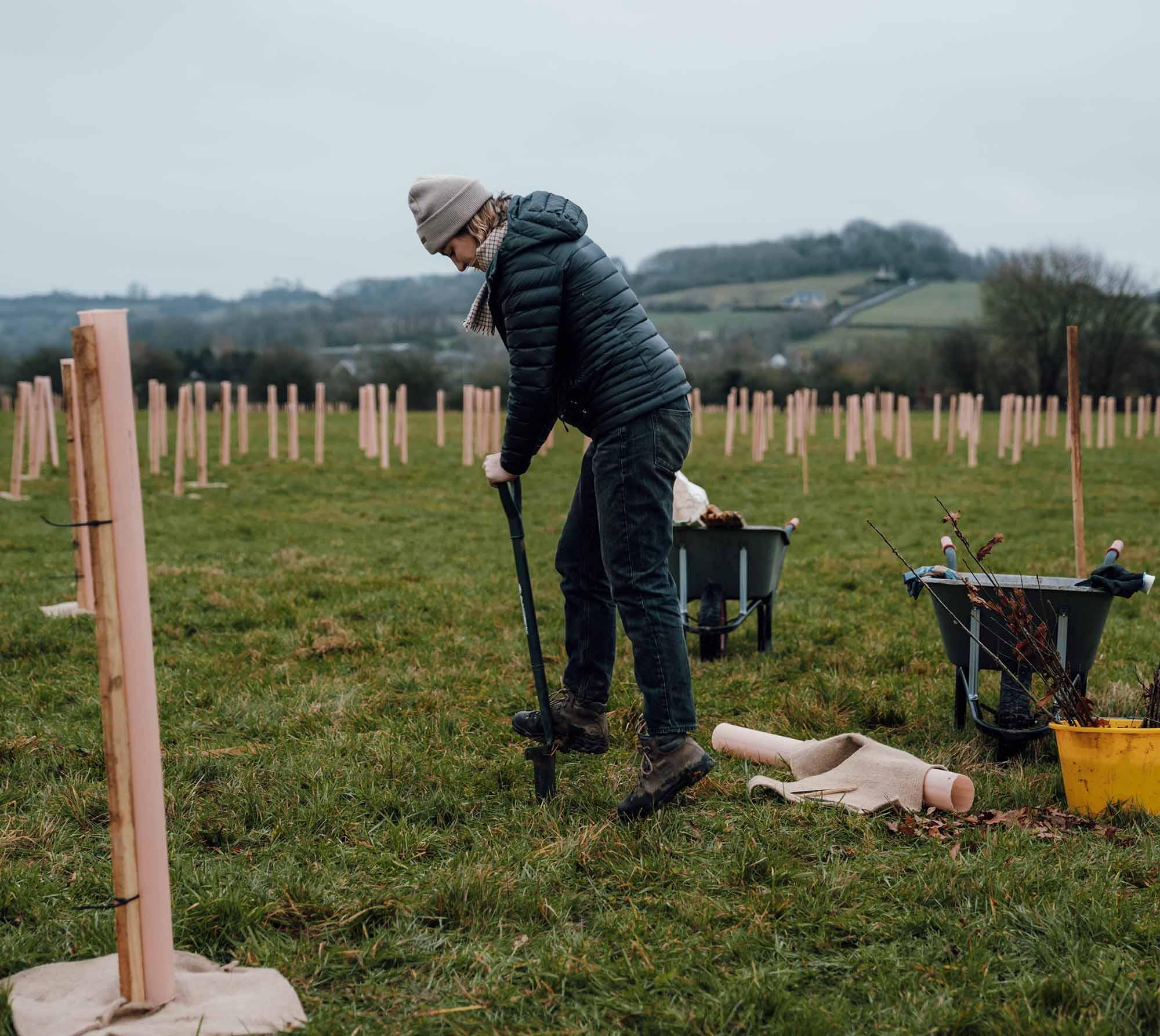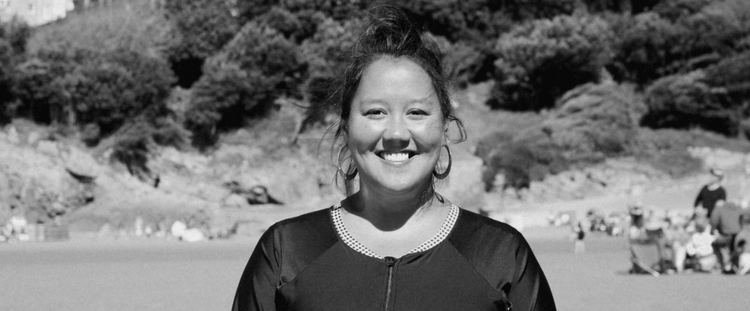
Meet the: Wild swimmer: Rachel Ashe
Rachel Ashe is the founder of Mental Health Swims, an organisation that runs informal cold water swimming events that are dedicated to helping people with their mental health, but open to anyone and everyone.
“I’m in Edinburgh at my parents’ place, it’s New Year’s Day 2019, it’s absolutely bloody freezing and I’m at the beach. They do a thing called the Loony Dook there, where they all run into the sea on the 1st January, whatever the weather. There are loads of people, mostly very hungover, some in wetsuits, some in swim suits and I’m stood there awkwardly in my tummy-control swimming costume.”
If you’d told her that day that she’d end up launching a nationwide movement of wild swimming mental health meetups, Rachel probably wouldn’t have believed you, but it was something she was well placed to understand the need for. She talks openly about her own struggles with Borderline Personality Disorder and how she feels that it, and many mental illnesses, have been stigmatised, making effective help harder to come by.
By the time she was standing on the beach in Edinburgh, she was dealing with the ever-changing balancing act of prescription medication. “When they talk about people having medication, it's not a walk in the park, and it's not like it suddenly makes everything easier. You do something that makes you feel a bit better. But you have to deal with side effects. The reality of it can be that you go for periods of time when you feel like absolute hell.”
On that biting morning, as the Loony Dook began, Rachel took her first steps towards the creation of support network that would help thousands. “Everyone starts to run, so I do too. I reach the sea and do this scoop/curl/fall into the water, very inelegant. It was so cold, it felt like burning pins and I’ll be honest, I didn’t enjoy it at all. It was horrible. I was in for a minute at the most. I came out and dripped my way up the beach and on the way I just felt this very strange awareness of my body. One of my symptoms is feeling really dissociated. I get a bit zoned out because it’s a great way of not feeling uncomfortable feelings. So suddenly, I was in my body again, having not really been there for ages. That felt great.” Over the next few months Rachel started swimming a couple of days a week, then three, then four, until she was going almost every day. A shout out on social media lead to a regular group getting together and she saw the potential for people to find a powerful moment of calm in an activity that was at once accessible and extreme.
“In a weird way, it’s a bit like when people have dogs. It’s easier to talk when there's an external focus and I find it’s the same with swimming. There's a lot of faffing involved, getting changed, walking down to the beach, standing on stones, saying “shit, that hurt” and talking about how it feels when the water hits you in your crotch. All those things are talking points which make conversation feel less intimidating. So I started the group and a couple of friends came, but it was mostly strangers and I met loads of people. It's actually how I met my partner as well. She came on that first swim and, you know, quite a long time after that, we ended up falling in love. There's something quite magical about that.”
The pink pirate flag that marks all Mental Health Swims meeting places followed shortly after that first group was established, as a recognition of the difficulty many people find in even approaching a group of strangers. “You want to know exactly where we’re going to be and not wander around the beach, going up to everyone and saying, “hi are you the mental health people?” So it takes away some of the anxiety of actually leaning in. It's a gift, I think, that our volunteers give of being able to make people feel welcome.” That group of volunteers grew rapidly during lockdown. When meeting physically was impossible, virtual sessions were run, in which people beamed in from paddling pools and plastic tubs in their gardens. It was a transformative time for the movement, which went from having one swimming group to over 30 in a matter of months. A training program for group leaders was designed, ensuring that the same spirit of inclusivity and understanding ran across through every meeting, and there are plans to carefully expand, possibly diversifying into meetups tailored for the needs of individual groups.
The testimonials on Mental Health Swims’ Instagram are, like the faces in the pictures, glowing. There’s talk of “electrifying, contagious joy” and how “cold water instantly soothes my troubles”, but most of those posting are, as Rachel is, keen to stress that cold water swimming is not a cure. “Even though I run Mental Health Swim and am trying to get people out into cold water, it is not a cure all. It’s a great support to our mental health rather than something that is going to be a magic wand. It's a great complementary thing to all the other things that you do to try and look after yourself. The feedback from a lot of our swimmers is that it's something which just gives them that extra boost to be able to cope with everything else. A lot of people struggle with meditation and other mindfulness practices, but cold water seems to just make you do it. I call it a kind of forced mindfulness, something that helps me be back in my body again, when sometimes I get trapped in my head all day.”
Rachel still swims as often as she can and hugely values the sense of connection to herself and others that it brings. We ask if she’s completely immune to the cold by now and she laughs, “I find it easier in winter, because I’m already cold, whereas in summer I’m nice and warm. It helps having a bit of “bioprene”, but I always tiptoe in bit by bit. I mean, I know how good for my mind it’s going to be, but it still feels like burning pins.”
If you’re ready to take the plunge, or at least the toe-by-toe dip, then find your local Mental Health Swims group here. You can also read about becoming a volunteer or contribute in other ways. Everyone is welcome and whooping, gasping and screaming as the water hits you is absolutely fine.





